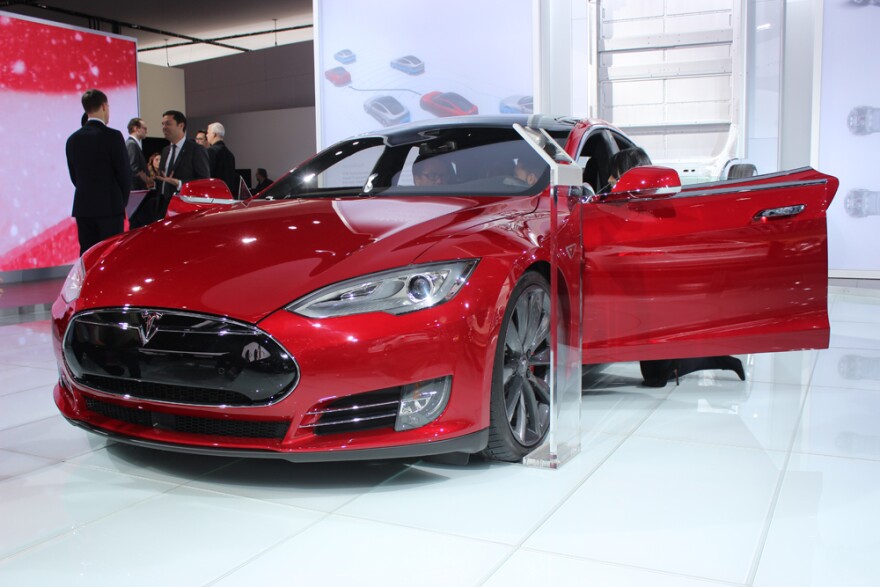Tesla, the Silicon Valley automaker, is getting its revenge.
The maker of infamous electric vehicles got approval this week to sell directly to customers in Michigan – the epicenter of the automotive establishment.
The deal is a victory for consumers — and a symbolic defeat for Detroit.
The legal settlement with Attorney General Dana Nessel signals a widening gulf between the interests of the hometown auto industry — and those of the environmental left.
And this week, the market value of Tesla topped $100 billion dollars, ranking it second only to Toyota among the world’s most valued automakers. Tesla’s more valued by investors than Germany’s Volkswagen. And it’s more valuable that General Motors and Ford Motor – combined.
This new reality should scare Detroit.

GM, Ford, and Fiat Chrysler build more cars and trucks separate — and combined – than Tesla. They employ union workers in their plants. They deliver fatter profits with wider margins, sometimes breaching 10%.
Part of Tesla’s strength is how much it doesn’t share with the stalwarts of the industry. Whatever pension obligations Tesla may have pale next to Ford’s, which said this week it would record a $2.2 billion-dollar loss on last year’s books to meet pension obligations.
And, no, despite being headquartered in deep blue California, Tesla does not have a union workforce. It won’t anytime soon because of CEO Elon Musk’s antipathy for the UAW and the federal corruption investigation into its shady union deals that undermines organizing efforts.
Second, Tesla investors need not worry whether an embattled UAW leader would order his members out on strike for 40 days like General Motors last fall. No, for global automakers operating in the United States, that’s a unique problem made in Detroit, which is why smart money is not attracted to century-old industrial giants with massive pension obligations, union contracts and excess plant capacity.
Third, Detroit's automakers essentially make all their profits selling increasingly large pickups and SUVs. But regulators overseeing the world's largest markets in China and the European Union are pushing rules in a decidedly electrified direction: namely, right into the business model of Musk's Tesla.
Smart investing looks to anticipate the next big thing with the most upside potential — not to reward an Auto 1.0 play that squeezes a few more bucks in variable profit from familiar trucks and SUVs.
Musk’s electrified fleet overturns that notion. It embraces the emerging regulatory bias for electrification, avoids investment in obsolete technologies like diesel engines, and charts an expansionary course with plants in China and Germany.
To claim a chunk of that value, Detroit will need to prove burdens of its past are not fixtures of the future. Good luck.
-
Daniel Howes is a columnist at The Detroit News. Views expressed in his essays are his own and do not necessarily reflect those of Michigan Radio, its management or the station licensee, The University of Michigan.
Want to support programming like this? Consider making a gift to Michigan Radio today.






